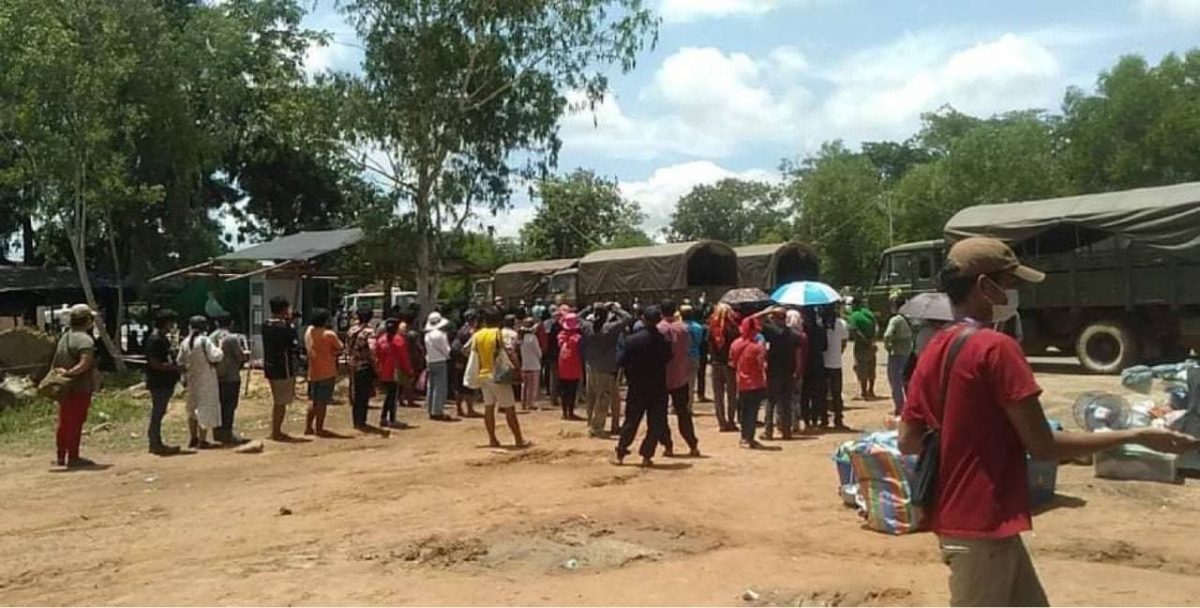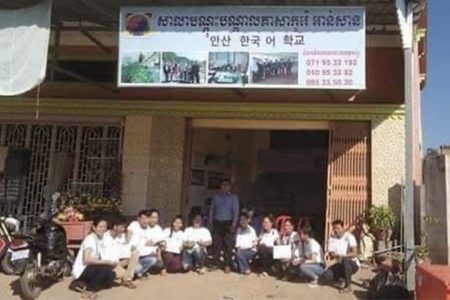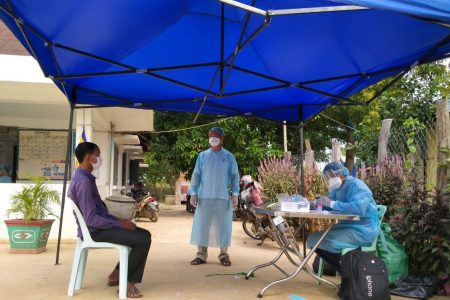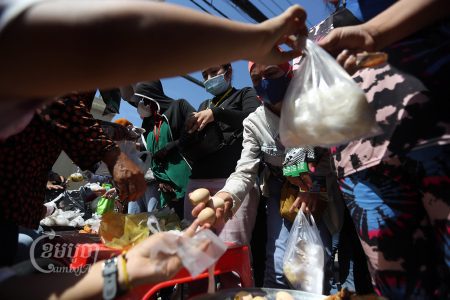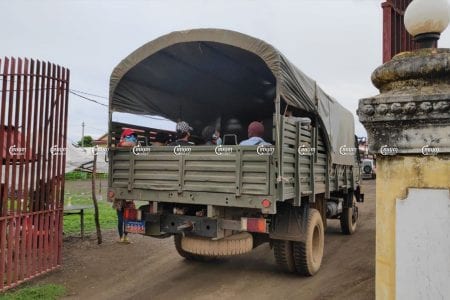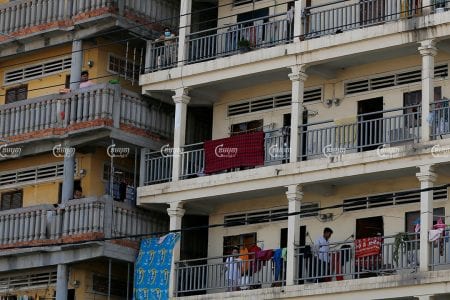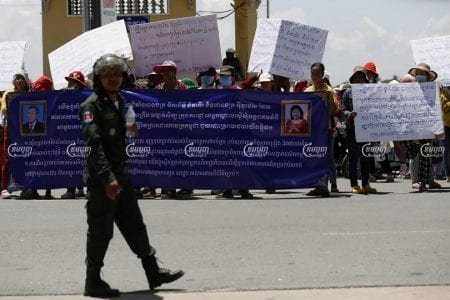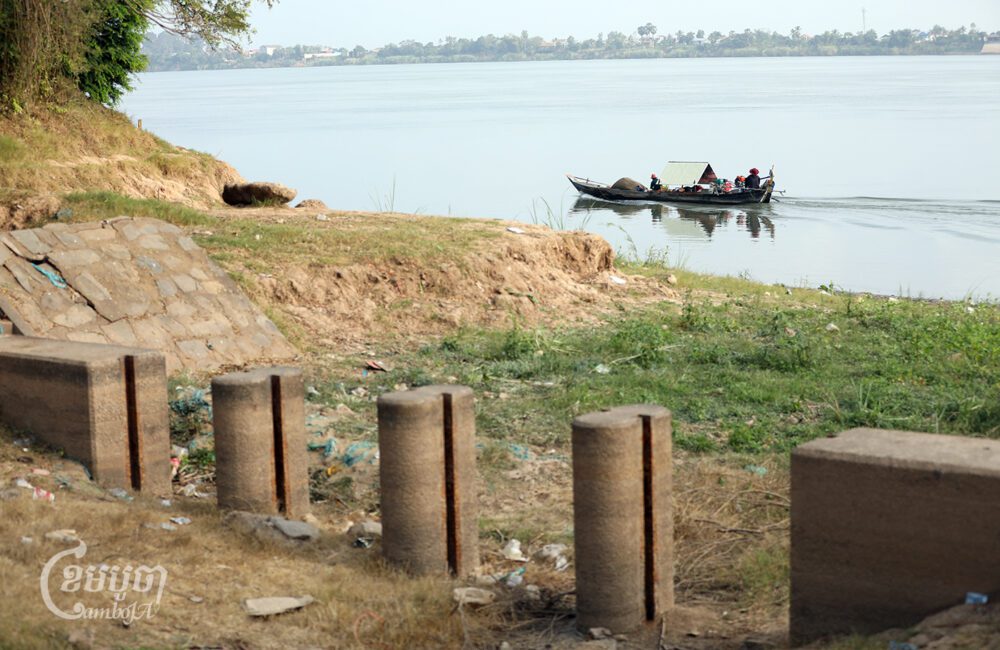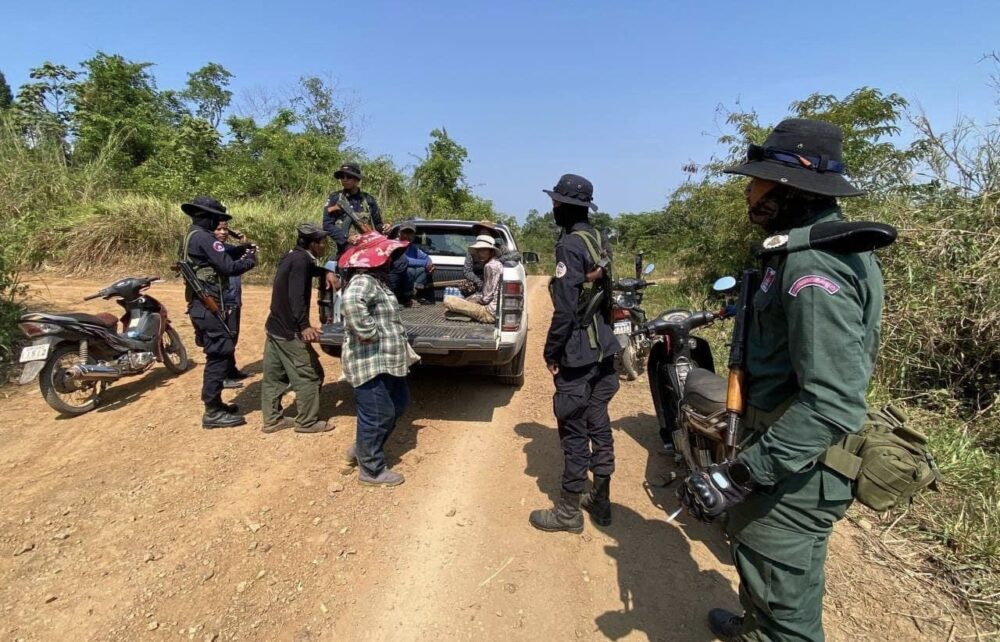At the age of 16, with her family facing severe financial difficulties, Keo Chakriya dropped out of school to join the workforce. Lured by promises of a high salary and better work conditions, Chakriya, now 22, did not hesitate to pursue work in Thailand. She got a job in a factory and stayed over five years, until August 2021, when she was forced to return to Cambodia as COVID-19 began its rapid spread.
‘’I was afraid of contracting the virus at that time. So, when the border opened, I rushed to return to Cambodia as fast as I could,” said Chakriya.
Chakriya told CamboJA that she earned about 500 dollars each month while working in a Thai factory.
‘’During my time there, I could earn good money to fend for myself as well as my family lives in Preah Sihanouk province. And if we want to earn more, we also can work overtime. It is just easy like that,” she said.
After returning home, it took her four months to find work.
‘’I largely depended on my family after I arrived in Cambodia as I did not have any jobs to do,” said Chakriya. ‘’But for now, I am working in a casino with my brother. Even so, I still get paid less compared to when I work in Thailand.”
Due to job losses, economic restrictions, and lockdowns in their host countries, about 200,000 Cambodian migrant workers have repatriated since the beginning of the pandemic in early 2020. As of last June, nearly 30 percent of their households had no income at all, according to a UN report, and more than 50 percent of these returned workers were indebted.
Amid these challenges, illegal border crossings into Thailand continue.
Im Kosal, the spokesperson of Battambang provincial police, said that while he didn’t have figures, the rates of migrants crossing to Thailand has been increasing. ‘’We have taken all sorts of actions to prevent them from crossing to Thailand or back to Cambodia illegally, but still, they have a way to attempt it,” said Kosal.
‘’We have explained to them about the risks of crossing the border illegally and hopefully, they are aware of that.”

Koy Kuong, the former Ministry of Foreign Affairs spokesman, said that 40 Cambodian migrants were stopped illegally crossing into Thailand between January 1 and January 11. During the same period of time, he said, 170 Cambodians working in Thailand sought assistance returning.
‘’They cannot find any jobs in Thailand due to the COVID-19 pandemic, and that is why they decided to go back to Cambodia,” he said.
But workers who have returned are struggling to find jobs locally given the poor economy, said Moeun Tola, executive director of rights group Central.
‘’It is hard to calculate the number of Cambodian migrant workers illegally crossing to Thailand, but we believe that it is still increasing,” said Tola.
According to Tola, there are almost three million Cambodian migrant workers working in Thailand and over 20 percent of them are undocumented.
Rights groups say women in particular are likely to face more difficulties finding employment upon returning.
A joint program funded by the United Nations Multi-Partner Trust Fund provided cash grants to support income-generating activities for 727 migrant women.
‘’Income generating [activities] were selected in collaboration with project beneficiaries and included chicken raising, vegetable growing, and small business ownership,” said Marta Walkowiak, program development and communications officer of IOM Cambodia.
She told CamboJA that the program was implemented between June and December 2020 in the three provinces with the highest numbers of returned migrants from Thailand. ‘’It is envisioned that the project can be expanded to other provinces with returning migrants,” she said.
The Ministry of Labor also has access to vocational opportunities, said spokesman Heng Sour. But he noted that most workers prefer to return to Thailand if they can.
‘’Those returning migrant workers mostly work in construction sites and agriculture. And as the COVID-19 is more controllable and they are already vaccinated, most of them have returned to Thailand,” he said.


